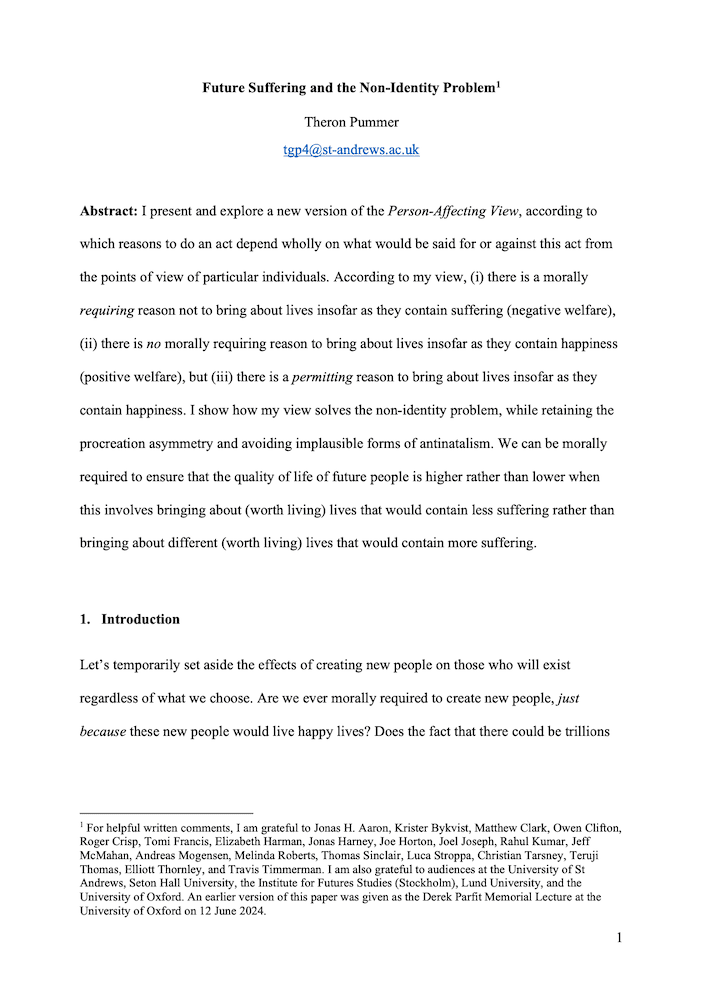Future Suffering and the Non-Identity Problem
Theron Pummer (University of St Andrews)
GPI Working Paper No. 17-2024
I present and explore a new version of the Person-Affecting View, according to which reasons to do an act depend wholly on what would be said for or against this act from the points of view of particular individuals. According to my view, (i) there is a morally requiring reason not to bring about lives insofar as they contain suffering (negative welfare), (ii) there is no morally requiring reason to bring about lives insofar as they contain happiness (positive welfare), but (iii) there is a permitting reason to bring about lives insofar as they contain happiness. I show how my view solves the non-identity problem, while retaining the procreation asymmetry and avoiding implausible forms of antinatalism. We can be morally required to ensure that the quality of life of future people is higher rather than lower when this involves bringing about (worth living) lives that would contain less suffering rather than bringing about different (worth living) lives that would contain more suffering.
Theron Pummer gave the Parfit Memorial Lecture 2024, Future Suffering and the Non-Identity Problem, on 12 June 2024.
Other working papers
Against Willing Servitude: Autonomy in the Ethics of Advanced Artificial Intelligence – Adam Bales (Global Priorities Institute, University of Oxford)
Some people believe that advanced artificial intelligence systems (AIs) might, in the future, come to have moral status. Further, humans might be tempted to design such AIs that they serve us, carrying out tasks that make our lives better. This raises the question of whether designing AIs with moral status to be willing servants would problematically violate their autonomy. In this paper, I argue that it would in fact do so.
What power-seeking theorems do not show – David Thorstad (Vanderbilt University)
Recent years have seen increasing concern that artificial intelligence may soon pose an existential risk to humanity. One leading ground for concern is that artificial agents may be power-seeking, aiming to acquire power and in the process disempowering humanity. A range of power-seeking theorems seek to give formal articulation to the idea that artificial agents are likely to be power-seeking. I argue that leading theorems face five challenges, then draw lessons from this result.
Heuristics for clueless agents: how to get away with ignoring what matters most in ordinary decision-making – David Thorstad and Andreas Mogensen (Global Priorities Institute, Oxford University)
Even our most mundane decisions have the potential to significantly impact the long-term future, but we are often clueless about what this impact may be. In this paper, we aim to characterize and solve two problems raised by recent discussions of cluelessness, which we term the Problems of Decision Paralysis and the Problem of Decision-Making Demandingness. After reviewing and rejecting existing solutions to both problems, we argue that the way forward is to be found in the distinction between procedural and substantive rationality…

